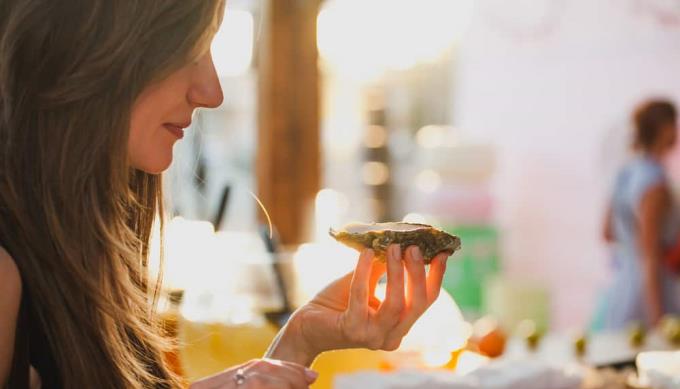Some foods that are normally safe become harmful during pregnancy. A lot of pregnant women may be worried about adding certain foods to their diet. Oysters are one of them. So can pregnant women eat oysters? With aFamilyToday Health, find the solution right in the following article!
Oysters are a gourmet treat and it is even one of your favorites. But, is it safe to eat oysters during pregnancy?
During pregnancy, you are responsible for yourself and for the baby in your womb. That is why a healthy lifestyle is essential at this time. So, to clarify your doubts about oyster consumption, here's our little guide for you.
Nutritional value from oysters
Oysters are known for their many nutrients and when eaten, they provide you with a variety of health benefits. One of all:
Oysters are low in calories, making them the perfect choice for those looking to maintain a steady weight.
Oysters are low in fat and rich in protein. In fact, they are an ideal source of dietary protein
Oysters are naturally rich in zinc and are one of the many important minerals needed during pregnancy. Just 85g oysters provide 67 mg of zinc
Oysters are also good for your heart. They contain important healthy minerals like omega-3 fatty acids, magnesium, potassium and vitamin E, all of which reduce inflammation and reduce the risk of cardiovascular disease.
While oysters have a lot of health benefits, which are beneficial for pregnant women, health experts advise you to limit your intake of this seafood. Why is that?
Why during pregnancy should limit eating oysters?

As a rule, to have a safe diet during pregnancy, you should avoid consuming raw, raw animal meat. Cooked or raw meat contains many bacteria that can lead to infection, and can sometimes cross the placental barrier, adversely affecting the baby's development.
Pregnant women have a weakened immune system and oysters (raw) are believed to be one of the most common causes associated with seafood causing food poisoning . Absolutely pregnant women should not eat raw oysters under any circumstances
Cooked oysters can cause gastrointestinal problems and also lead to serious infections in the developing fetus. In fact, it is also believed to cause neurological effects and miscarriage
Tips for eating oysters during pregnancy
Nutritionists and other experts give advice on consuming oysters during pregnancy.
Do not eat raw oysters. However, it is possible to enjoy cooked oysters once during the second trimester (middle 3 months) of pregnancy.
The FDA advises you to limit seafood consumption during pregnancy because many fish and other seafood contain toxic substances that can harm the developing baby.
It is also advisable to avoid eating oysters during the first and last trimester of pregnancy
Make sure all the oysters you consume are fully cooked (preferably under your supervision)
Eat oysters and other seafood or animals while they're fresh instead of keeping them in the refrigerator for a few days before serving. Do not eat frozen seafood
If wondering if pregnant women should eat oysters or not, consider carefully. Because eating seafood during pregnancy can also interact with certain medications, so if you are already taking certain supplements or medications, you must discuss it with your doctor first. Don't forget to share your views with us, wise mothers.












